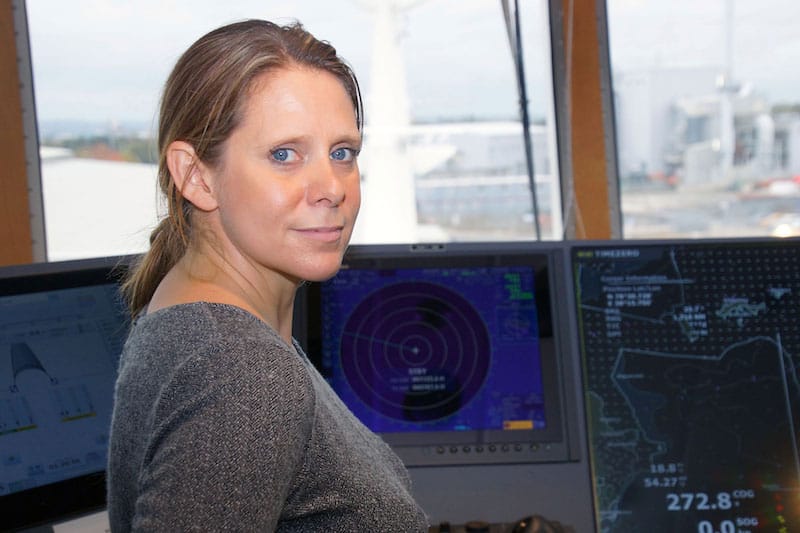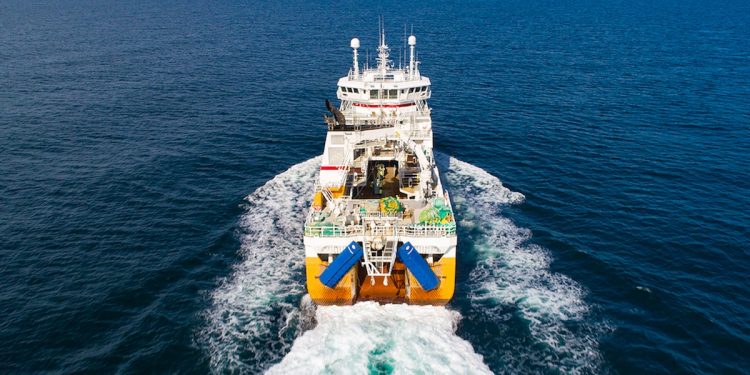The UK’s distant waters fleet stands to be left out in the cold from the end of this year, and could be cut off from North Atlantic fishing grounds if the UK government does not act quickly to secure access.
As things stand, the only UK fishing company operating in these distant waters, the Hull-based UK Fisheries with its two fishing vessels, currently has no fishing opportunities on its traditional distant waters from 1st of January next year.
‘If we lose our distant waters fishing industry, the irony of the government’s aspiration to become a proudly independent coastal state will not be lost voters of the ‘red wall’ in the north-east of England,’ commented Jane Sandell of UK Fisheries.

It’s also ironic that this situation arises after decades of the UK distant waters fleet declining, just as UK Fisheries has put a £120 million investment into modernising its fishing capacity and infrastructure ashore in the Humberside region.
Under agreements between the EU and coastal states around the North Atlantic, a significant portion of the quotas allocated to the EU have subsequently been allocated to the UK – but with the UK’s departure from the EU, this will no longer be the case.
The quotas that UK Fisheries vessels operate on are instead likely to be allocated elsewhere, unless the British government concludes new agreements with the EU and with primarily with Norway, the Faroe Islands and Greenland, and arranges shares of quotas in the NAFO, NEAFC and Svalbard areas with the relevant treaty organisations.
Under current arrangements, Norway, the Faroes and Greenland all allow EU vessels fishing rights in their waters in return for access to EU markets for their own production. The UK share of the Svalbard quota is set by the EU – even though the UK is a signatory in its own right to the Svalbard Treaty.
‘The UK must agree a continued share of these fishing opportunities with the EU – Now,’ Jane Sandell said, adding that the same applies to agreements over access to Norwegian, Faroese and Greenland fishing grounds.
‘DIT is making a trade agreement with Norway. Defra has reached a fisheries framework agreement, but this makes no reference to the UK’s Arctic cod quotas. A framework agreement is being made by Defra with the Faroes for ratification in October, but this makes no detailed reference to UK fishing quotas. There is no ongoing FTA or fisheries negotiation with Greenland that we are aware of.’
The UK now has a seat on NAFO, but a UK share still needs to be agreed with the EU, and the same applies to the NEAFC area – with the quota shares for 2021 being set in November this year.
The UK Fisheries position is that the British government should be negotiating with Iceland for a new bilateral agreement that would include fisheries access, as a new FTA with Iceland is currently under negotiation.
A further opportunity would be the Falkland Islands, where fishing licences are granted to fishing companies, mainly in Spain, to fish primarily for squid. UK Fisheries argues that the UK government must agree bilateral deals with the Falklands’ government.
In contrast to the stance taken by some parts of the UK fishing industry, which reject EU claims that fishing and market access are inextricably linked, UK Fisheries points out that the UK has a huge trade deficit with the Nordic coastal nations, and the bulk of the fish consumed in the UK comes from the distant waters where the UK Fisheries vessels operate.
‘As a newly-independent coastal state, the UK can leverage its market with these nations in return for continued or better access to their waters,’ Jane Sandell said.
‘EU-UK issues are important, but not at the expense of Nordic fisheries deals.’









